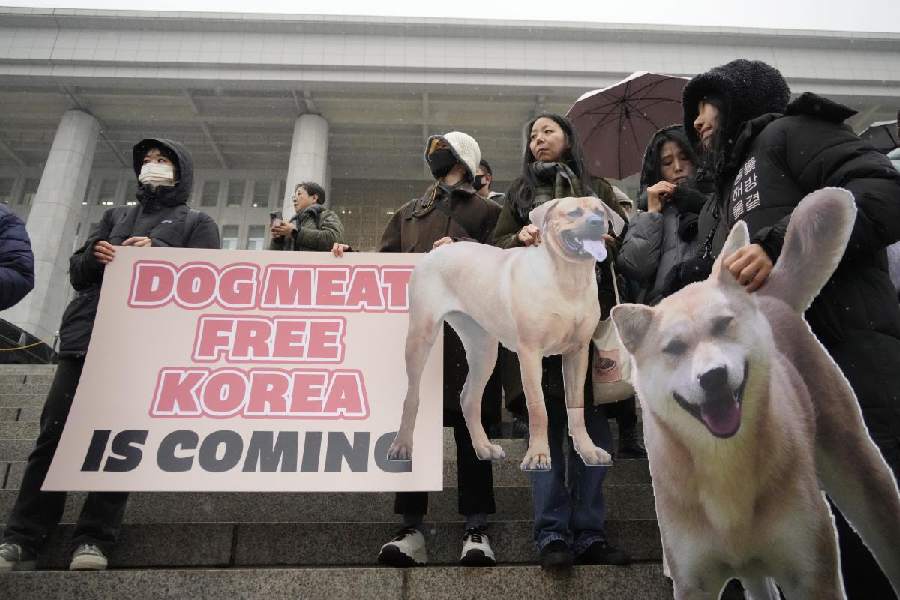South Korea’s lawmakers on Tuesday outlawed the breeding, slaughter and sale of dogs for human consumption, a centuries-old practice that is unpopular and rare today.
Dog meat was once more common, and remained so in the decades after the Korean War when the country was destitute and meat was scarce. It is used in a well-known dish that Koreans call “bosintang”, or “soup good for your body”. But the practice became increasingly shunned as incomes, pet ownership and concern for animal welfare rose steadily in the late 20th century.
Today, many South Koreans, especially younger people, see eating dog meat as appalling. About 93 per cent of South Korean adults said they had no intention of consuming dog meat in the future, and 82 per cent said they supported a ban, according to a survey.
“This is history in the making I never thought I would see in my lifetime,” Chae Jung-ah, the director of Humane Society International Korea, said in a statement by the group. She added, “We reached a tipping point where most Korean citizens reject eating dogs.”











